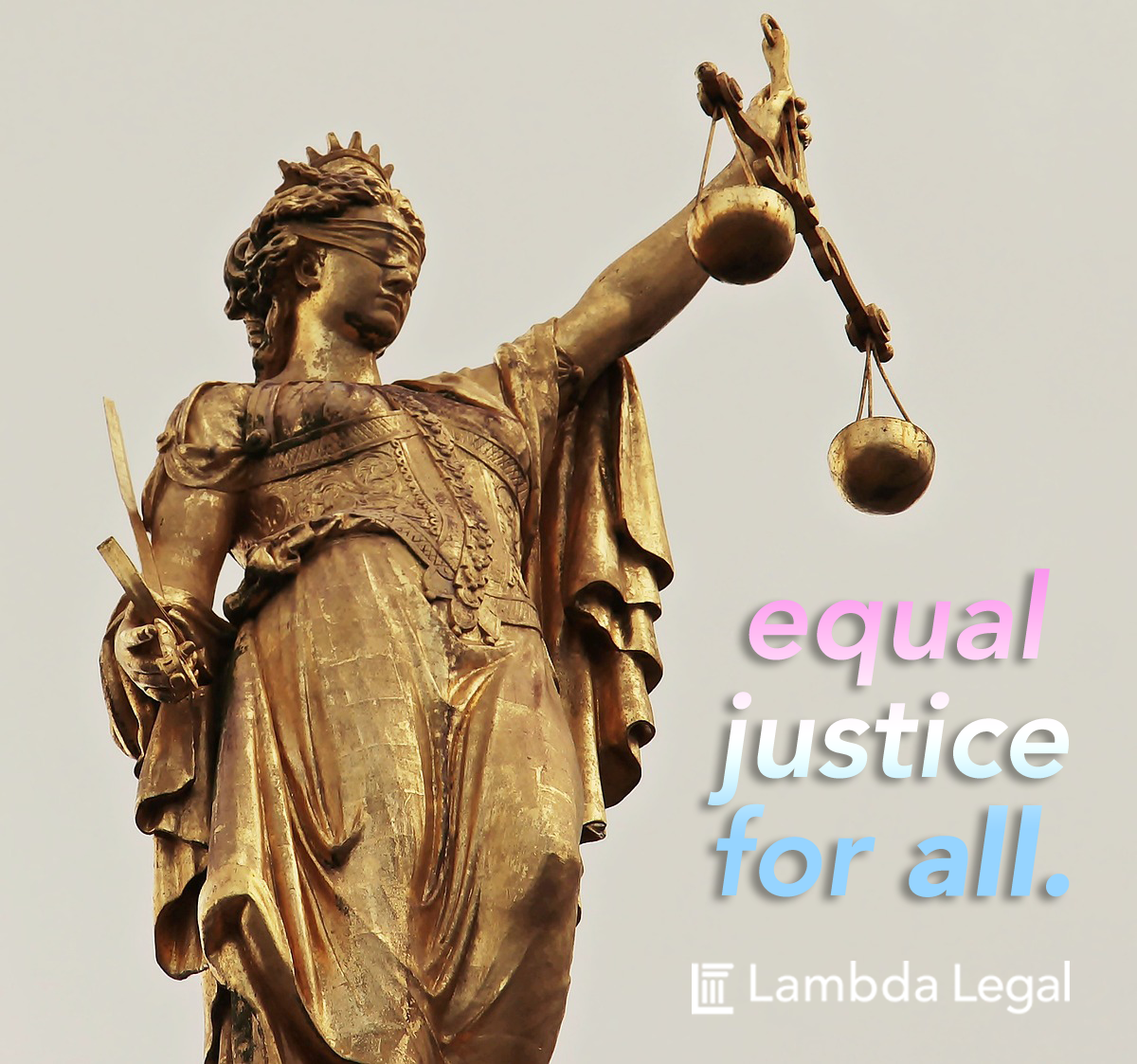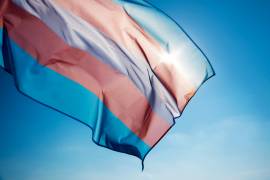This is part of our blog series written by Lambda Legal staff in honor of Transgender Awareness Week 2019.
Read Part I: Committing To A Year of Action: Five Ways to Honor Our Community by Avatara Smith-Carrington and Taylor Brown.
Read Part II: HHS's Nonstop Attacks on Transgender People by Sasha Buchert.
Read Part III: Support Trans Youth in Out of Home Care by Oliver Stabbe.
___
This Transgender Awareness Week, let’s focus on one place where transgender awareness is notably absent: the courts.
When the U.S. Supreme Court heard oral arguments last month in a set of cases addressing whether LGBTQ people are protected from workplace discrimination under Title VII, one thing was made clear: Supreme Court Justices (like many other judges) don’t know much about the T in LGBTQ.
In R.G. & G.R. Harris Funeral Homes v. EEOC, the case in which Aimee Stephens was fired after informing her boss she is a woman and would be transitioning, the very first inquiry raised by the justices was Chief Justice Roberts asking how to analyze the issue of a “transgender man transitioning to woman” when “he…, he or she” is doing so to use the women’s bathroom.
Every day, transgender people face brutal discrimination and rejection of their identity. At Lambda Legal, we often hear from trans and nonbinary people who have been treated disrespectfully by judicial officers –including experiences of being misgendered, turned away, mocked, denied appropriate legal representation or criminalized disproportionately.
We know of judges who don’t want to make decisions in cases involving trans people, and those who have laughed out loud in open court because a transgender person asked for the respect of being addressed with their correct pronouns.
A person’s identity–including their name and pronouns—is a powerful, essential element of someone’s dignity and humanity. Denying it has dangerous consequences.
Most people come into contact with courts at the local or state level. According to the 2015 U.S. Transgender Survey, thirteen percent of respondents who had visited courts in the previous year experienced negative treatment when staff either knew or they believed staff knew that they were transgender. Transgender women of color, again, experience negative treatment at the highest rates. When transgender people are treated disrespectfully in court or turned away by a particular judge, they are denied access to justice—further harmed by the very system through which they are seeking protection.
Access to the courts is fundamental to a functioning democracy. Unfortunately, a lack of understanding and knowledge about transgender people is persistently widespread in the legal community.
From Justice Roberts’ use of “transgender man” when he was talking about a transgender woman; to the Court’s extended conversation on the questions surrounding restrooms (questions not at issue in the case); to Justice Gorsuch’s query about what consideration should be given to the “massive social upheaval” that would be caused by protecting transgender people in the workplace; it was made evident on October 8th that the very humanity of transgender people was foreign to the court.





